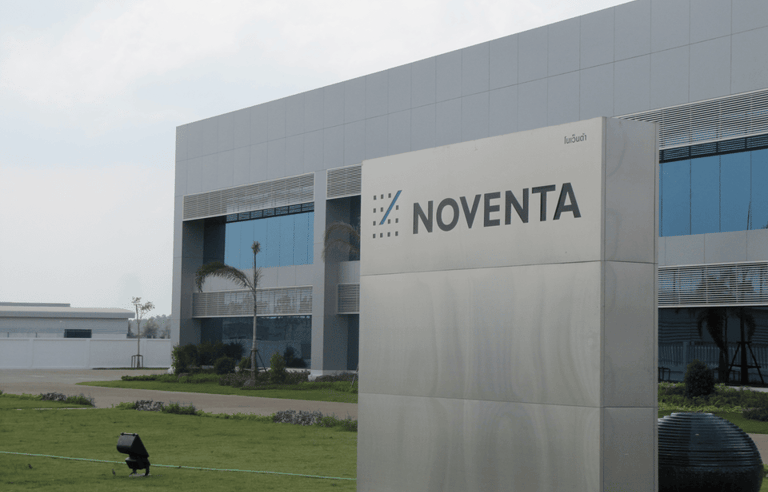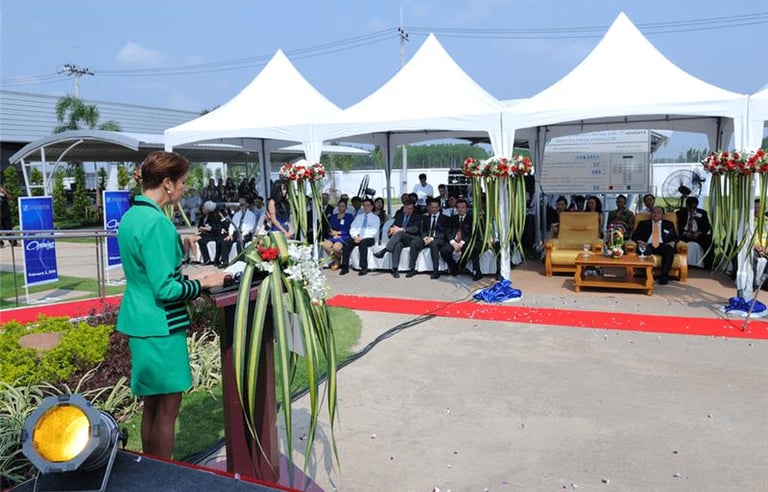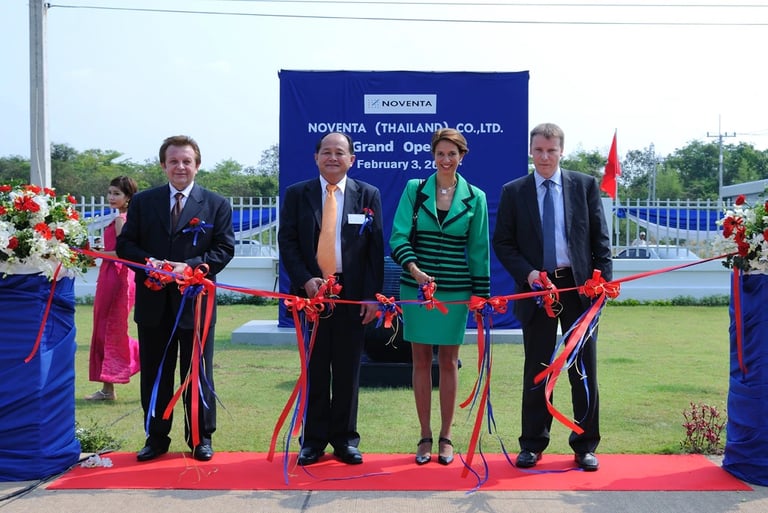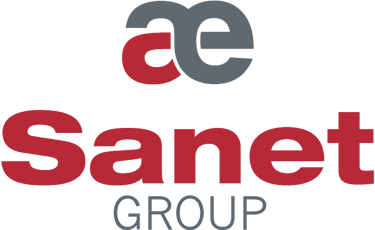INVESTMENT CONSULTING
INVESTMENT CONSULTING IN THAILAND: SANET IS HERE FOR YOU!
THE SANET GROUP IS WELL-VERSED IN THE COUNTRY AND REGION
Investing in Thailand is becoming more and more attractive for medium-sized companies in search of favorable economic conditions in a rapidly growing market. As a leading investment consulting company in Thailand, the Sanet Group assists its clients in making the most of the advantages and avoiding the pitfalls of setting up their own production in Thailand.
How does it appeal to you to produce in a country which allows exporting to 17 Asian countries without paying import customs duties? A country with advanced industry, sound infrastructure, and a reasonably priced labor market with well-trained people? And what would you say if this country also waives corporate income tax for many years, offers you the opportunity to own land, and provides you with a great quality of life? Then you are thinking about investment in Thailand.
The Bavarian automotive supplier SGF was supported by Sanet from strategy development to SoP of its own plant in Thailand. Tasks included feasibility study, site selection, land procurement, construction tendering, recruiting, and all special tasks within the scope of project management.




A successful foreign direct investment in Thailand requires a systematic approach. Here Sanet, the consulting and investment firm in Bangkok, describes step by step how a successful FDI project in Thailand ought to be structured.
Sanet assists with every step of the investment process in Thailand through workshops and hands-on on-site project management.

In a 2-day workshop, the elaborated data was analyzed and evaluated to promote the establishment of a production location in Asia. Sanet prepared a feasibility study for this purpose. The previously defined target countries were compared and ranked according to their chances of success.
Mr. Michael Weikert, Managing Director | Süddeutsche Gelenkscheibenfabrik GmbH & Co. KG
Step 1: Motivation and Objectives
It all starts with a workshop. All parties involved in the company first have to agree on the reasons for investing in Asia. Is it to cut production costs, or to be closer to the market, or to benefit from low freight costs or is it for the elimination of customs duties? In other words, what exactly are the reasons for investing?
Short and medium-term targets should also be defined:
Which products do we want to produce in Asia?
Which markets do we want to serve?
Do we want to develop a service structure, and which components do we want to source locally?
Step 2: Which Country to Choose?
Often, there are different countries to choose from for investment. It is worthwhile to first check which country is most suitable for the specific investment. A short comparative study is therefore a good way to invest in the right environment.
In doing so, general criteria such as legal system, labor market and labor costs, tax environment, political stability, the protection of intellectual property and similar issues are the focus of interest.
But individual considerations such as the demand for the company’s products in the respective target country, the competitive situation or even the procurement market can also play an important role at this point. While, for example, products for basic industrial needs are still important in Vietnam, the numerous international companies in Thailand are rather looking for automation and technically sophisticated products.
Step 3: Planning and Risk Management
Project planning is a particularly critical point in the company. In our project planning, we provide some important information on what to look out for when putting together a project team. Risk management is also one of the first steps when investing in Thailand.
Important points of risk management are:
Determining “exit points” at which the budget and success are 1000 re-evaluated at specific project steps.
The strategy for communicating with employees, banks, suppliers and, for example, credit insurers.
Step 4: Legal Set-up
Once the motives and goals, the investment country and the project team have been determined, it is important to choose the right legal structure for your enterprise in the target country. In Thailand, this is usually a Company Limited. At Sanet Legal and Accountancy, experienced Thai and German lawyers can help you with the company formation in Thailand and with the subsequent necessary steps, from tax registration to opening a bank account.
They also ensure that the articles of association, the company’s objectives, the structure of capital and voting rights and all foreigner-related legal requirements in Thailand will be observed.
Step 5: Investment Promotions
Foreigners can produce it in Thailand without special permits under alien law. However, an application for a promotion by the Board of Investment brings numerous advantages. If successful, it entitles the applicant to land ownership, grants tax holidays and reliefs for up to 13 years, customs exemptions and more favorable conditions for visa and work permits.
Here as well, the investment promotion experts at Sanet Asian Advisors, in cooperation with the lawyers at Sanet Legal, provide assistance to investors in the context of the stringent business plans required for the application. They maintain a dense network of connections to the relevant authorities.
Step 6: Site Evaluation
The search for a suitable location and the site evaluation are among the most important steps for both, consulting and investment in Thailand. Our link provides you with detailed information on what to look out for.
Country-specific criteria that are difficult for foreign investors to anticipate:
Who, as a foreigner, would think that their property might be flooded during the rainy season?
Who is aware of the fact that in Thailand, construction costs are up to 35% dependent on whether the foundations need to reach a depth of 30 meters or whether spread footings are sufficient?
The following should be considered:
Choose a property in an Industrial Estate with IEAT license. Here, you can own your property even without a BOI promotion, and the factory license is already included in most cases.
If you also want to sell and purchase goods or materials in Thailand, avoid the free zone. Every single small purchase or sale to Thailand requires full customs clearance there and the authorities carry out strict controls.
On the other hand, with a Thai Certificate of Origin for your products produced in Thailand, you can export duty-free to almost all Asian countries anyway. Therefore, depending on your business case, the advantages of the free trade zone are sometimes limited. Here are more details about Free Trade.


The local presence of Sanet and their existing network in Thailand enabled an efficient and at the same time extremely well-founded evaluation of potential locations. As a result, the final decision for the future location of Noventa Thailand was made after less than six months and only two extended trips by Noventa management.
Dieter P. Marxer | Director Noventa AG
Step 7: Tender and Construction
When it comes to tendering for construction work, the combination of experienced consulting and investment in Thailand is of particular importance. No “good buddy” or local one-time-investor can match the experience of a consulting firm such as the Sanet Group, gained from numerous projects.
Consider the following:
Many international construction companies use local general contractors for construction work and add a hefty mark-up to their prices.
Good consultants, such as Sanet Asia Advisors, know the leading local General Contractors and will introduce you to a number of these companies. You then make the selection of which ones will be included in the Tendering Process.
Avoid splitting the construction work into a wide range of sub-projects. This is because, first of all, all companies will pass the buck to each other when deadlines are not met and damages occur due to delays.
On the other hand, good General Contractors, as “returning customers”, often receive better prices from subcontractors of suppliers of technical equipment than you could get by negotiating directly.
But even the best General Contractor should be monitored. An independent Project Manager, whom Sanet may recommend and mediate, will take over the construction supervision and quality control for you.
Step 8: Recruitment of Key Staff
Start your search for early. For key positions, Sanet Manpower is the top recruitment agency in Thailand. One of the most crucial key positions is that of the HR manager. He or she not only holds the “local team together“, but can also take on further recruitment at middle and lower levels. A general manager, head of accounting, factory manager and purchasing manager are usually among the other key positions.
Step 9: Local Investment Consulting
Your in-house project manager should spend a large portion of his time on site in Thailand. However, we highly recommend that he works closely with your local investment consultants. Sanet offers the possibility of setting up a project office for the project manager directly at the office of the investment Sanet investment consulting. This close collaboration will make your project manager’s learning curve considerably steeper.
Another advantage of such close cooperation is that a team of experts from different fields is always available to advise on important decisions and provide practical support.
By the way: the Sanet Group also offers a tailor-made “menu” of support services that can be booked at a flat rate with monthly payments over the entire planned project duration.
Just book here your free initial investment consulting with the Sanet Management.
CONTACT US
FOR A FREE CONSULTATION
Whether you have questions or would like to explore how our consulting services can support your business, we are here to help!
Feel free to reach out using the form on our website or email us directly at management@sanet.co.th.
We appreciate your interest and look forward to the opportunity to connect with you.
Connect
© Sanet Group (2025). All rights reserved.
2/1 Soi Rom Klao 25/2
Bangkok 10520, Thailand
+66 2 737 642-0
management@sanet.co.th
www.sanet-group.com
Business License
No. 0105548029419
Recruitment License
No. 1900/2567
2/1 Soi Rom Klao 25/2
Bangkok 10520, Thailand
+66 2 737 642-0
partner@sanet-legal.com
www.sanet-group.com
Business License
No. 0105560114781
2 Soi Rom Klao 25/2
Bangkok 10520, Thailand
+66 2 737 642-0
management@sanet.co.th
www.sanet-group.com
Business License
No. 0105543069391
2/1 Soi Rom Klao 25/2
Bangkok 10520, Thailand
+66 2 737 642-0
management@sanet.co.th
www.sanet-group.com
Business License
No. 0105567088611
Denk IT GmbH
An Der Aspe 7
36137 Großenlüder
Hessen, Germany
www.denkit.com
+49 661 250090-20

